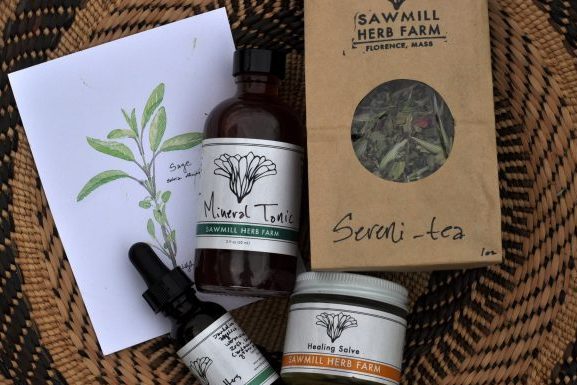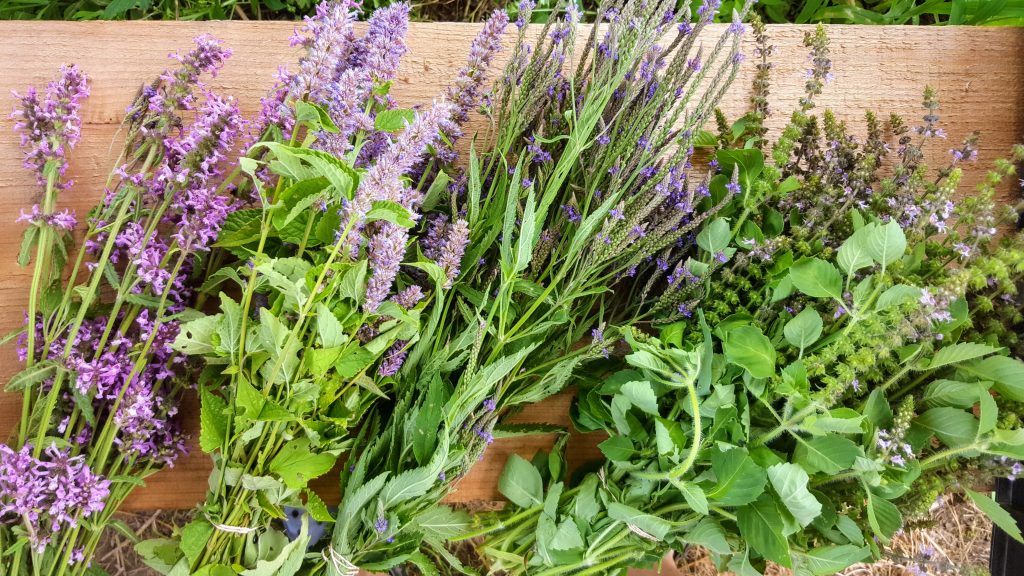Herb Profile: Rosemary
Rosemary, Rosmarinus officinalis, Lamiaceae

Many herbalists think very highly of rosemary as an outstanding herb for lots of conditions, too many to list here, but here are a few of its medicinal properties:
Rosemary stimulates the metabolism and helps the body to break down sugars and fats. It also stimulates the nervous system, and has a strengthening affect on the arteries, stomach, intestines, gall passages and heart while relaxing the sympathetic and voluntary muscles. Rosemary is helpful for those with weak peripheral circulation and low blood pressure as it helps to remove congealed blood, open capillaries and improve sensation. This helps to remove cold conditions from the limbs, including stiffness and soreness from arthritis and bruises and strains.
Rosemary has a folklore reputation for boosting memory and giving courage and is thought to help with depression, nervousness and anxiety.
Preparations
Rosemary is an excellent culinary herb and is classically used when roasting meats or vegetables. For more medicinal quantities, rosemary can be made into a tincture with the fresh or dried herb. If using fresh material, use as high proof alcohol as you can find, with dried plant then 151 proof vodka is good. A basic tea of rosemary is good using fresh or dried leaves, I prefer to make a tea in combination with other herbs as rosemary has a very strong flavor. Externally, rosemary tincture, tea or fresh plant can be rubbed freely into areas of poor circulation. To stimulate a weak heart, rub into the heart region of the chest.
Nettle-Rosemary Rinse for Dark Hair (adapted from Holly Bellebuono)
In this rich rinse, the vinegar cleans, strips away old layers of grime and leaves hair silky and shiny. Nettles and rosemary add dark depths to the hair and nourish the scalp. Keep this rinse in the refrigerator in the summertime and use it in the outdoor shower for a cooling rinse. Warm it in the winter before using.
Combine 1 cup dried nettle leaves and 1 cup dried rosemary in a pint jar. Warm 2 cup apple cider vinegar in a pan and pour it over the herbs. Allow it to steep overnight. Strain and reserve the liquid, add 1 teaspoon vegetable glycerin. Shake the mixture well. Use 2 to 4 teaspoons per shower instead of or after shampoo. Massage it into the scalp well and rinse.
Cautions/Contraindications
Take caution with pregnancy except in food amounts. Not indicated for high blood pressure and headaches with hot bursting symptoms or in situations where a stimulant would be irritating.
Disclaimer
The information on this page has not been approved by the FDA. Please consult your healthcare practitioner before using herbal products. We do not endorse the websites linked to in the resources and have not extensively reviewed all the information on external pages for accuracy. Everyone reacts differently to herbs and we do not attempt to be completely inclusive in the information and contraindications for each herb.
Shop our Apothecary and Nursery
-

Apothecary Products
Empower yourself with an apothecary that will nourish you in every season. All...
-

Nursery Products
Grow your garden. We grow certified organic herb, flower and vegetable starts...


